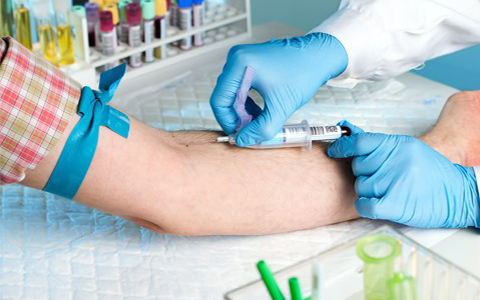Background
Project: CASYM
Imagine you are ill and see the doctor. After a brief examination and blood analysis, you receive an efficient, personalised treatment that is adjusted to both your personal physiological makeup and your lifestyle. What sounds like science fiction today could soon come closer to reality with the help of the FP7 project CASyM, funded by the European Union.

Within CASyM, clinicians, researchers, companies and funding organisations from across Europe work together to bring basic life science research and everyday clinical practice together. Their effort is based on the rapid development of a young scientific field called Systems Biology, which analyses and describes biological entities such as cells, organs and whole organisms in an all-encompassing or systems level.
CASyM’s ultimate goal is the efficient application of Systems Biology approaches in medical research and practice leading to what is called Systems Medicine. To achieve this goal, the CASyM partners are developing a road map, which is planned to guide the European efforts in establishing Systems Medicine for the benefit of public health. CASyM was started at the end of 2012 involving 22 international partners. It is not a stand-alone project but aims to incorporate and complement existing Systems Medicine initiatives across Europe and to integrate new partners during its four-year funding period.
Translating innovation
Within Luxembourg, two partners are involved in CASyM: the Luxembourg Centre for Systems Biomedicine (LCSB) for the University of Luxembourg and the National Research Fund (FNR), Luxembourg’s national research funding body.
CASyM is not a conventional research project but deals with the challenges of coordinating the integration of different stakeholders’ interests such as:
- Teaching and training of Systems Medicine to produce a new generation of medical doctors and scientists having interdisciplinary thinking,
- Translation of innovation into devices, services and products usable in clinical practice by specifically engaging small and medium-sized enterprises,
- Triggering national funding bodies to develop proactive policies in support of a subsequent research and technology development phase, and
- Building and maintaining a solid networking structure among different stakeholder groups to disseminate broadly the achievements of CASyM’s strategic concepts and results.
Systems Medicine actions at European level
The LCSB and FNR are mainly involved in the latter three activities promoting best practice, innovation, analysis of existing research programmes and setting up pan-European activities in Systems Medicine. The extensive knowledge on Systems Biomedicine as one of the central pillars of Luxembourg’s research landscape is a key component that led to participation of the LCSB as a founding partner of CASyM.
Luxembourg is in fact one of the few countries in Europe that already have a scientific programme on Systems Medicine in place. Through CASyM, the Grand Duchy benefits from gaining visibility and helping shape the future direction of the European efforts in the field of Systems Medicine. What is a central goal of the CASyM project for the whole of Europe is already taking place for the partners within the project: next to discussing the scientific and clinical challenges of Systems Medicine, exchange about common funding schemes is taking place; here, Luxembourg is recognised as a specifically active and ambitious player in Systems Medicine.
This innovation was made possible by Israel’s continued participation in the official Horizon 2020 fund, managed in Israel by ISERD part of The Israel Innovation Authority (Formerly the Office of the Chief Scientist and MATIMOP). The initiative has taken Israeli R&D to the next level with the help of ground-breaking collaboration between scientists in Israel and Europe, as well as essential funding and support.
Project details
Project acronym: CASYM
Participants: Germany (Coordinator), France, Sweden, UK, Slovenia, Italy, Luxembourg, Iceland, Nederlands, Ireland, Israel
FP7 Proj. N° 305033
Total costs: € 3 673 555
EU contribution: € 2 996 476
Duration: November 2012 – October 2016
